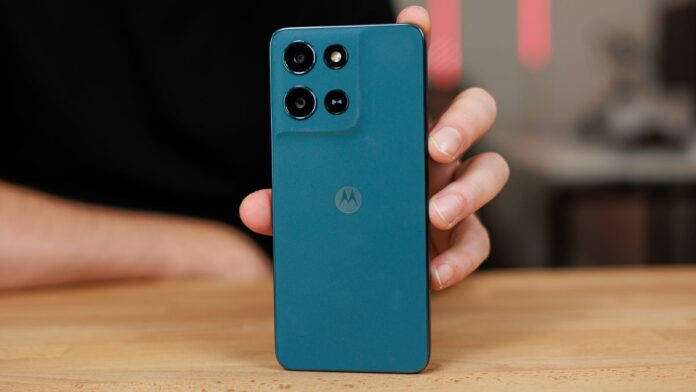Times have changed, though, and now we have phones like the new Moto G Play (2026) from Motorola. You have to remember that this is a sub-$200 phone, or $179, to be exact.
What do you get for that modest price you ask? Well, a surprisingly satisfactory experience would be the shortest way to sum it up. There’s a 32 MP camera that does the job for snapshots, support for eSIM in addition to nano-SIM, and a design that looks considerably more premium than the number on the price tag would suggest.
Still, you should temper your expectations. Motorola has used outdated tech to keep the price this low, so you need to know what you are getting yourself into — no matter how small the price tag is. The good news, however, is the overall package is not bad for what it’s worth.
The Moto G Play (2026) earns a 4.7 PhoneArena Rating, which is slightly below the average for its price class. While it delivers excellent battery life, a surprisingly premium-looking design, and stereo speakers with Dolby Atmos, several factors pull the score down. The 720p display, thick bezels, and low brightness affect the overall viewing experience, and the entry-level chipset limits both heavy performance and long-term flexibility. Camera and video quality are serviceable but not competitive with similarly priced alternatives, and Motorola’s historically slow software update cadence also affects its long-term value.
Motorola Moto G Play (2026) Specs
Bare minimum, but solid
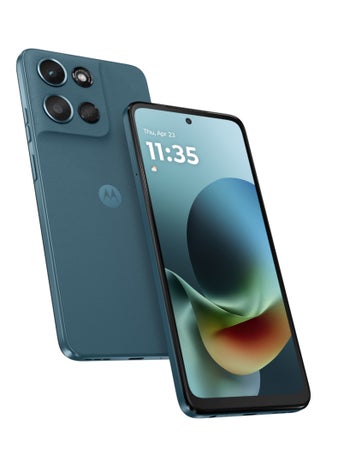
|
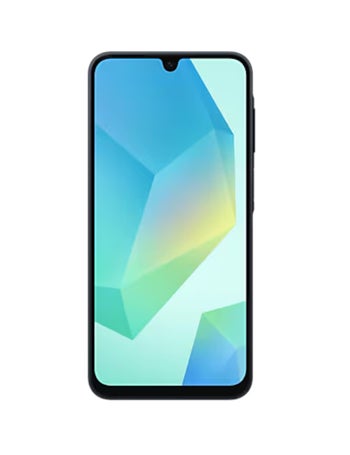 
|
| Motorola Moto G Play (2026) | Samsung Galaxy A16 5G |
| Dimensions | |
|---|---|
| 167.2 x 76.4 x 8.5 mm | 164.4 x 77.9 x 7.9 mm (~9.2 mm with camera bump) |
| Weight | |
| 202.0 g | 200.0 g |
| Size | |
|---|---|
| 6.7-inch | 6.7-inch |
| Type | |
| IPS LCD, 120Hz | Super AMOLED, 90Hz |
| System chip | |
|---|---|
| Mediatek Dimensity 6300 (6 nm) | Exynos 1330 (5 nm) |
| Memory | |
| 4GB/64GB (UFS 2.2) | 4GB (LPDDR4X)/128GB (UFS 2.2) 8GB/256GB |
| Type | |
|---|---|
| 5200 mAh | 5000 mAh |
| Charge speed | |
| Wired: 18.0W | Wired: 25.0W |
| Main camera | |
|---|---|
| 32 MP (PDAF) Aperture size: F2.2 Pixel size: 0.64 μm |
50 MP (Autofocus) Aperture size: F1.8 Sensor size: 1/2.76″ Pixel size: 0.64 μm |
| Second camera | |
| 5 MP (Ultra-wide) Aperture size: F2.2 Sensor size: 1/5″ Pixel size: 1.12 μm |
|
| Third camera | |
| 2 MP (Macro) Aperture size: F2.4 |
|
| Front | |
| 8 MP | 13 MP |
Motorola Moto G Play (2026) vs Samsung Galaxy A16 5G specs comparison
or compare them to other phones using our
Phone Comparison tool
Motorola Moto G Play (2026) Design and Display
A budget phone that looks more expensive than it is
Motorola has given the Moto G Play (2026) a design that punches above its weight. The phone uses a silicone polymer (eco leather) back, which looks and feels premium while avoiding fingerprints and giving you extra grip. It also makes the device easier to handle with one hand, despite its 6.7-inch screen.
The plastic frame keeps the weight reasonable at 202 grams, and all buttons — including the side-mounted fingerprint scanner built into the power button — are placed comfortably. The scanner itself is surprisingly quick and consistent, and the placement on the side is far more ergonomic than the budget in-display options we often see.
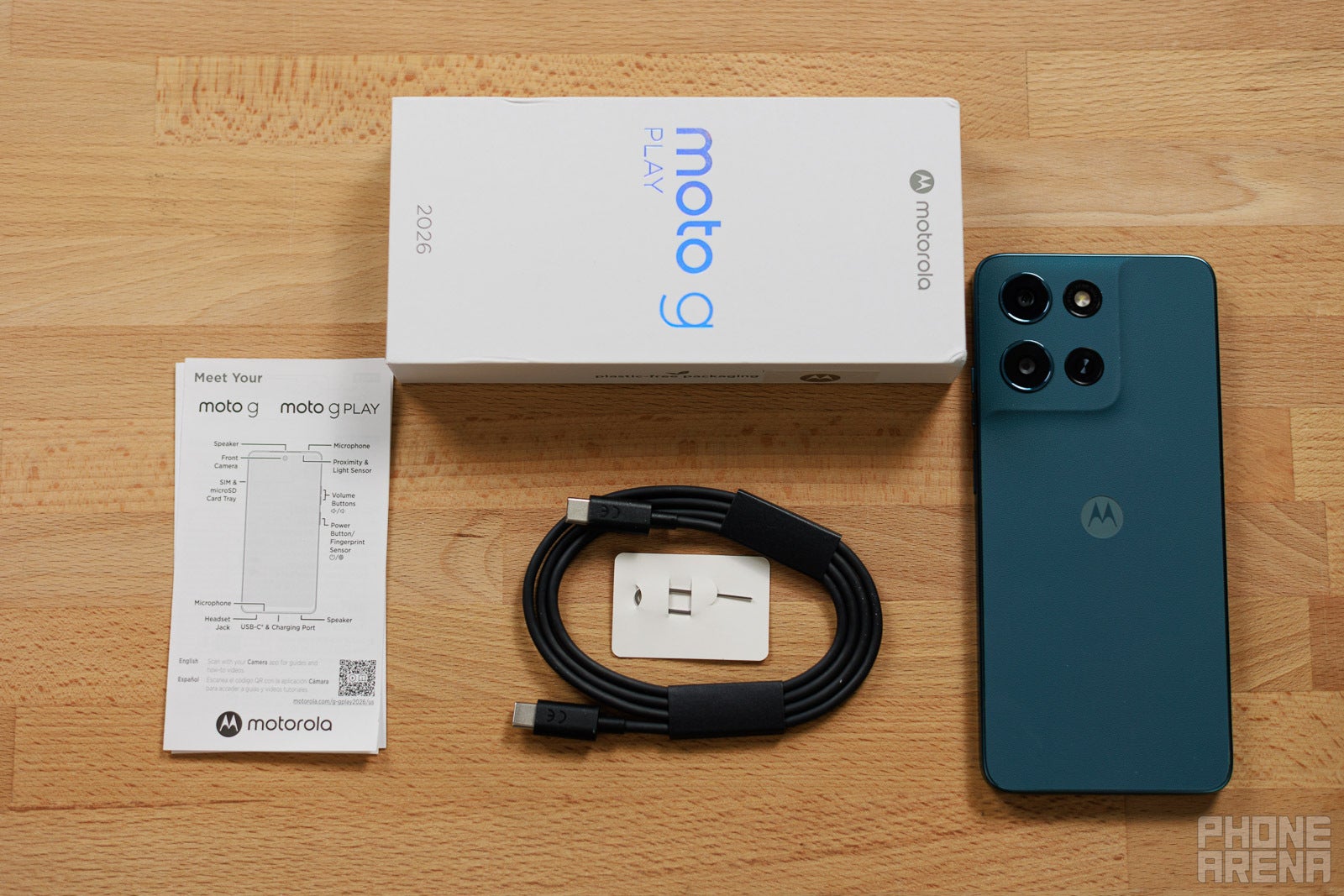

No additional goodies in the box, unfortunately. | Image credit — PhoneArena
Inside the box, you get:
- The phone
- USB-C cable
- Documentation
- SIM ejector
A charger is not included.


Color accuracy is on the average side of the spectrum. | Image credit — PhoneArena
The 120 Hz refresh rate makes scrolling and animations feel much smoother than expected at this price — but the touch sensitivity is overly aggressive. The screen reacts to the lightest swipe, often scrolling faster or further than intended.
One of my biggest gripes with the display on the Moto G Play (2026) besides its werid sensitivity, is its brightness. It is hard to see under bright conditions, and it doesn’t get dim enough for comfortable use at night. That said, it is still slightly brighter than Samsung’s Galaxy A16.
As for biometrics, the Moto G Play (2026) comes with a side-mounted fingerprint scanner, which is fast and reliable. In fact, I much prefer when manufacturers embed the fingerprint scanner in the power button compared to the ones embedded in the display, as I find it easier to work with.
Motorola Moto G Play (2026) Camera
Surprisingly responsive with decent photo quality
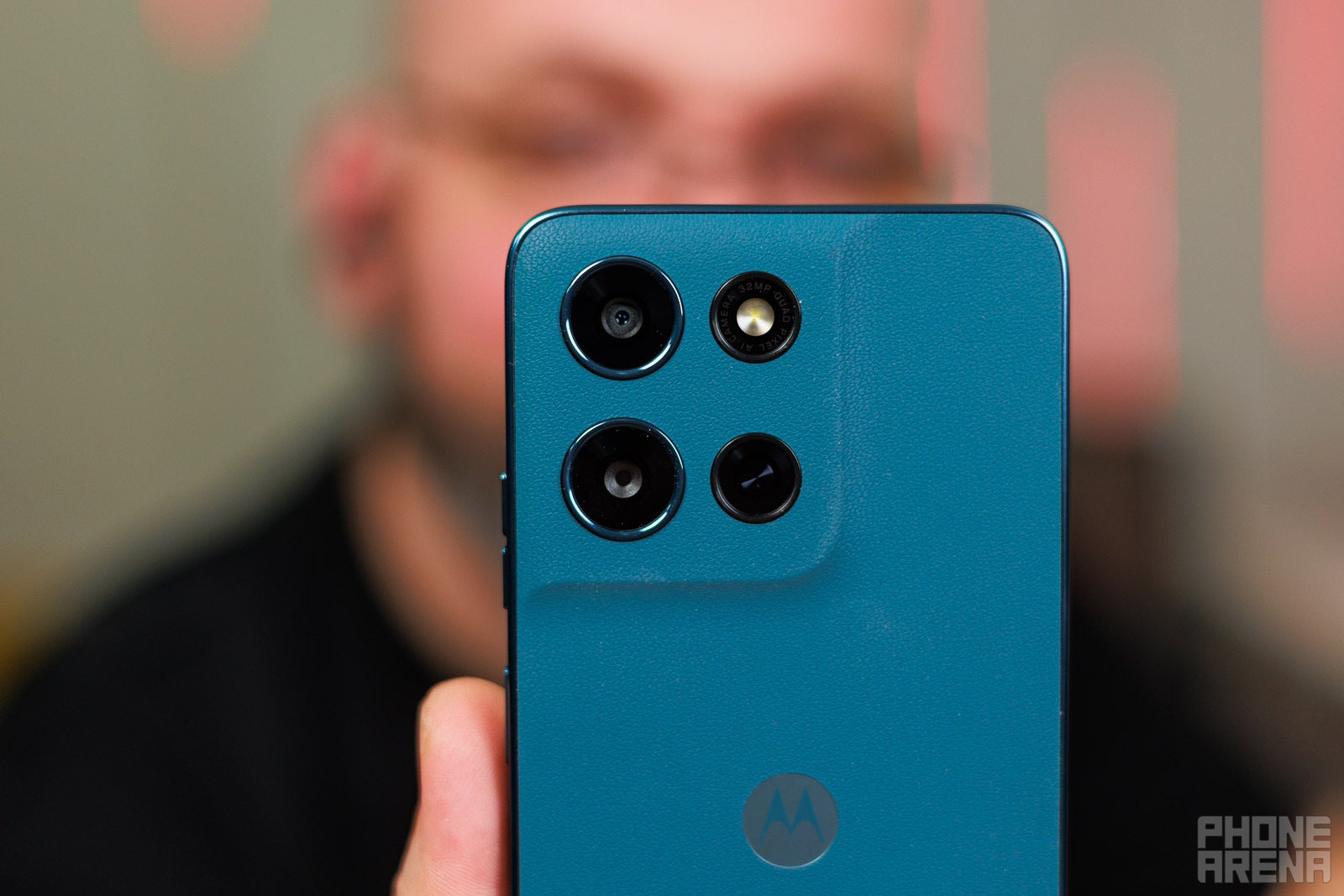

It’s just one camera. | Image credit — PhoneArena
The Moto G Play (2026) earns a PhoneArena Camera Score of 94, which is the poorest we’ve seen on an entry-level phone. The Photo Score of 101 highlights that the single 32 MP main camera can deliver decent results in good lighting, with acceptable detail and color for this price range. Meanwhile, the Video Score of 87 shows that the phone handles 1080p30 recording somewhat well, though the lack of 4K and limited stabilization keep it behind more expensive devices.
Scores for zoom and ultra-wide are naturally lower, as there is no dedicated zoom lens and no ultra-wide camera. The selfie camera performs respectably for casual use, though.
While it might look like there are two cameras on the back, you actually get a single 32 MP one. The second “lens” is a light sensor to assist with subject detection when shooting in Portrait mode.
All images besides the second one in the slideshow above have been taken in full auto mode. Generally, I’m quite happy with the image quality from the single camera on the Moto G Play (2026).
What surprised me the most is how accurate the colors are, especially considering much more expensive phones don’t get that part right.
The HDR performance was also pretty good, as seen in the image with the orange bulding number sign and the sky behind.
As for the selfie camera, I think it also does an okay job, although I can’t say the same for using Portrait mode with it — it simply looks too fake. Also, keep in mind that these selfies were took in pretty even light, which is arguably the easiest conditions for a camera, so the results could be different if you are taking selfies in high-contrast scenarios, and they would most definitely be worse in low-light.
Video Quality

The video stabilization is — as expected — quite poor. The whole image becomes blurry with each small movement. That said, it looks okay when the phone is still, as you can see at the end of the video when I stop and point at the sign.
As I mention in the video, I am particularly impressed by how accurate the colors are. Now that I look the recorded video, I am also impressed by how well the camera balances the bright and dark areas — it’s not great, but it’s also not as bad as I expected.
Keep in mind that you can record video at a maximum of 1080P 30 FPS. There is no 60FPS mode, let alone 4K recording.
Motorola Moto G Play (2026) Performance & Benchmarks
Ready for play (with limitations)
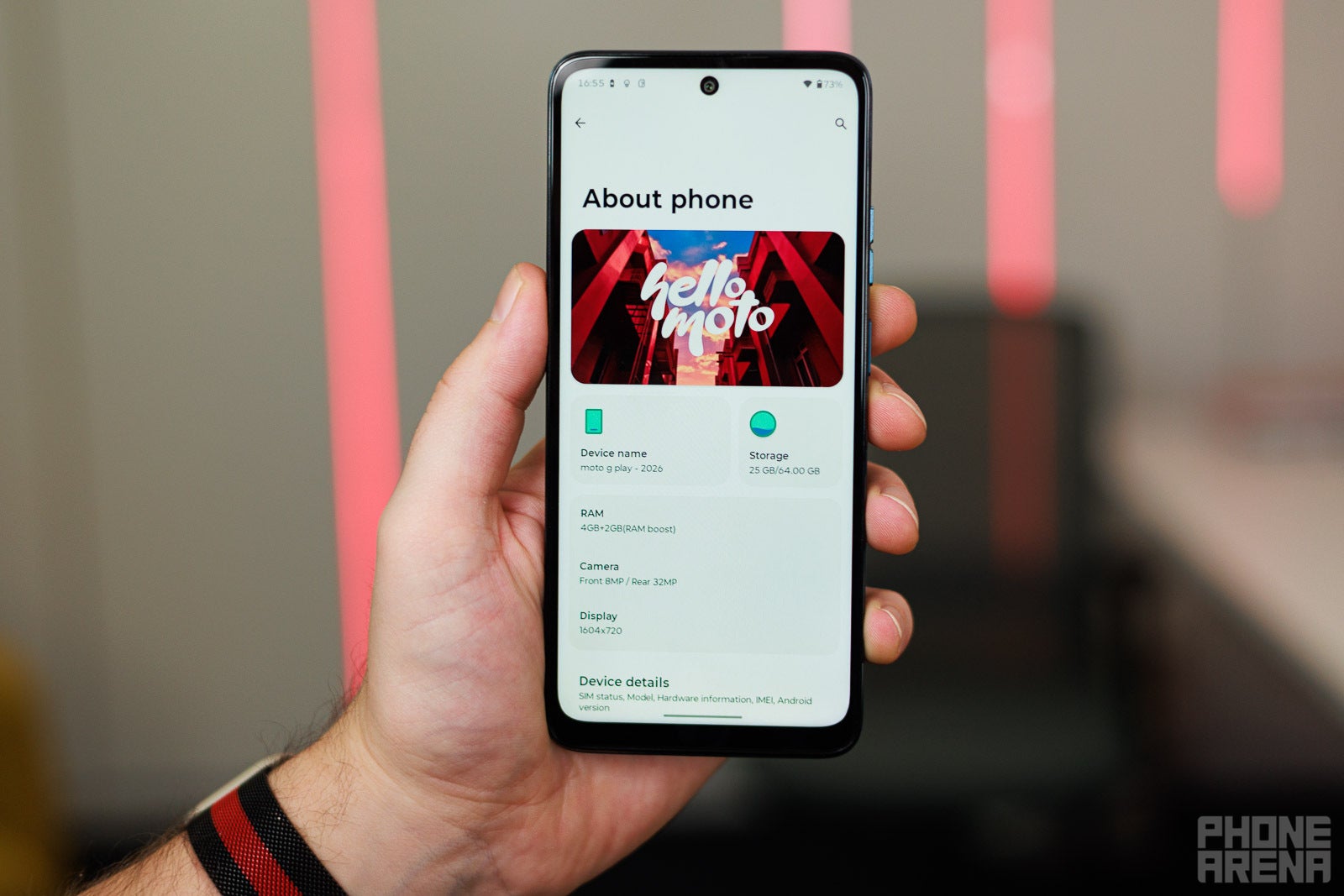

You can play most games as long as you dial down the graphics settings. | Image credit — PhoneArena
The Moto G Play (2026) runs on the MediaTek Dimensity 6300, paired with 4 GB of RAM. Motorola’s RAM Boost feature lets you allocate up to 8 GB of virtual RAM from storage, giving the phone a total of up to 12 GB to work with, but keep in mind that this is far from being the same as having 12 GB of actual memory on board.
For everyday tasks like messaging, browsing, YouTube, social media, the phone feels smoother than its specs suggest. Animations and UI navigation are fluid, and you can even get away with light gaming — I played Leage of Legends Wild Rift and it ran without any major issues, albeit with sub 60FPS. Heavy multitasking and more demanding games are not in this phone’s power, though.
CPU Performance Benchmarks:
The Geekbench 6 numbers show exactly where the Moto G Play (2026) stands in the entry-level segment. In the single-core test, it scores 797, while a similarly affordable device like the Galaxy A16 5G reaches 965. This means the Samsung handles quick, one-threaded tasks a bit faster — things like opening apps, loading menus, or rendering parts of web pages.
However, in the multi-core test, the Moto G Play actually pulls ahead with 2095, compared to 1875 on the Galaxy A16. This suggests the Dimensity 6300 is better at handling parallel tasks, such as running multiple background processes or juggling several apps at once (within reason for this class, of course).
GPU Performance
The Moto G Play (2026) comes with very low storage — 64 GB. When you factor in the apps and system, that doesn’t leave you with much. The good news is that you have expandable storage via a microSD card up to 1 TB.
Motorola Moto G Play (2026) Software
The Moto G Play (2026) ships with Android 16, using Motorola’s very light, almost Pixel-like UI approach. It’s clean, uncluttered, and easy to navigate. It is surprisingly smooth, especially with the 120 Hz display and RAM Boost set to maximum.
Motorola promises a two OS updates, but update speed remains one of Motorola’s weakest points. Security patches are scheduled for every two months, though these also tend to arrive later than expected.
Motorola Moto G Play (2026) Battery
Peace of mind
If it is one thing the Moto G Play excells at it is its battery life. The lower resolution display and weak chipset, combined with the 5200 mAh battery capacity, really help it on this front. The result is an estimated 9 hours and 27 minutes in our Battery Score.
Outside of the tests, though, I can also confirm that the battery of the Moto G Play (2026) falls as slowly as a dropped feather, even when gaming.
PhoneArena Battery Test Results:
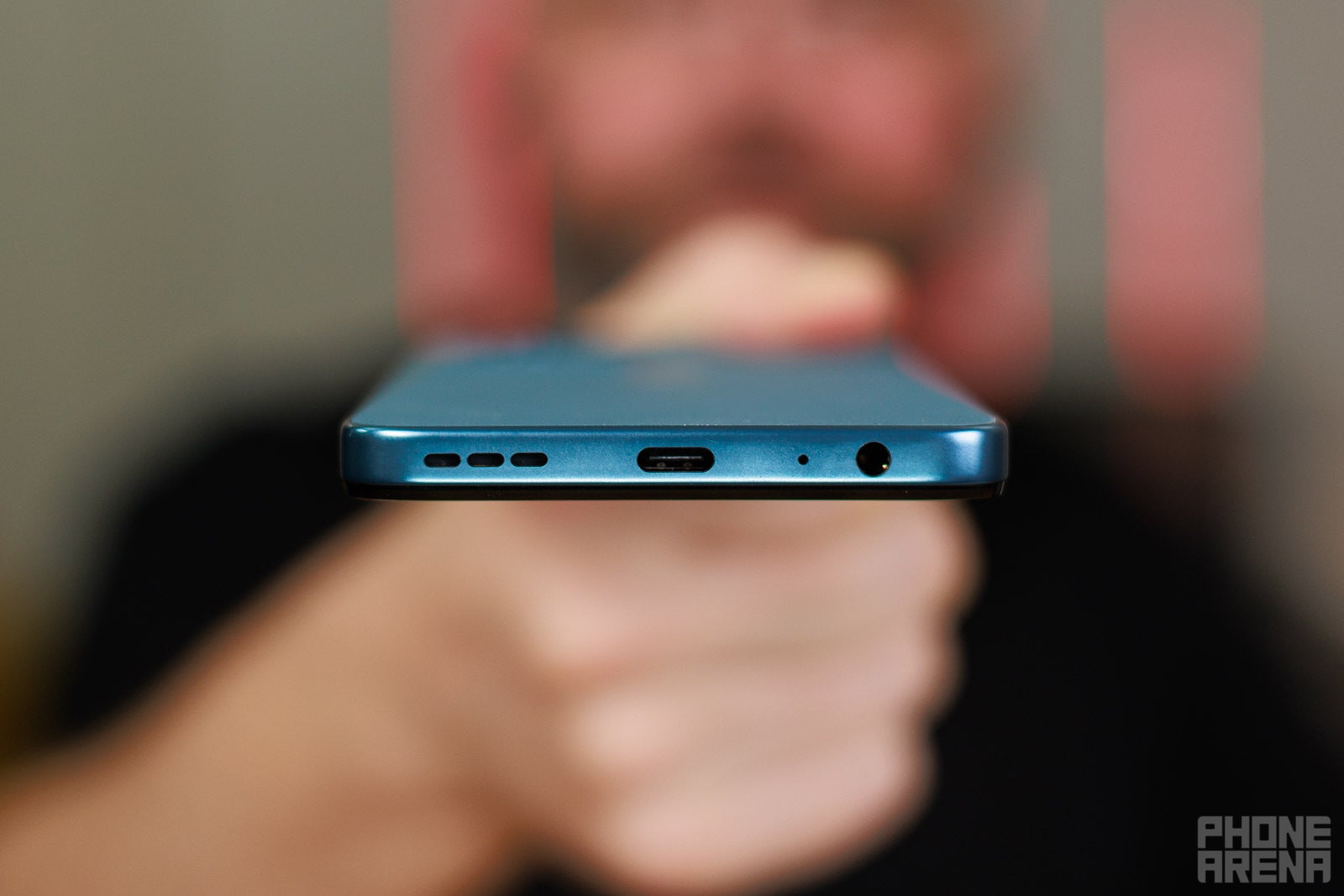

Charging could have been a bit better. | Image credit — PhoneArena
Much more expensive phones than this Moto don’t support wireless charging, so we can’t really blame Motorola for not including this feature with the new Moto G Play.
Motorola Moto G Play (2026) Audio Quality and Haptics
Haptics are basic but not overly buzzy. They’re serviceable for typing and navigation, but far behind mid-range and flagship devices.
Should you buy it?
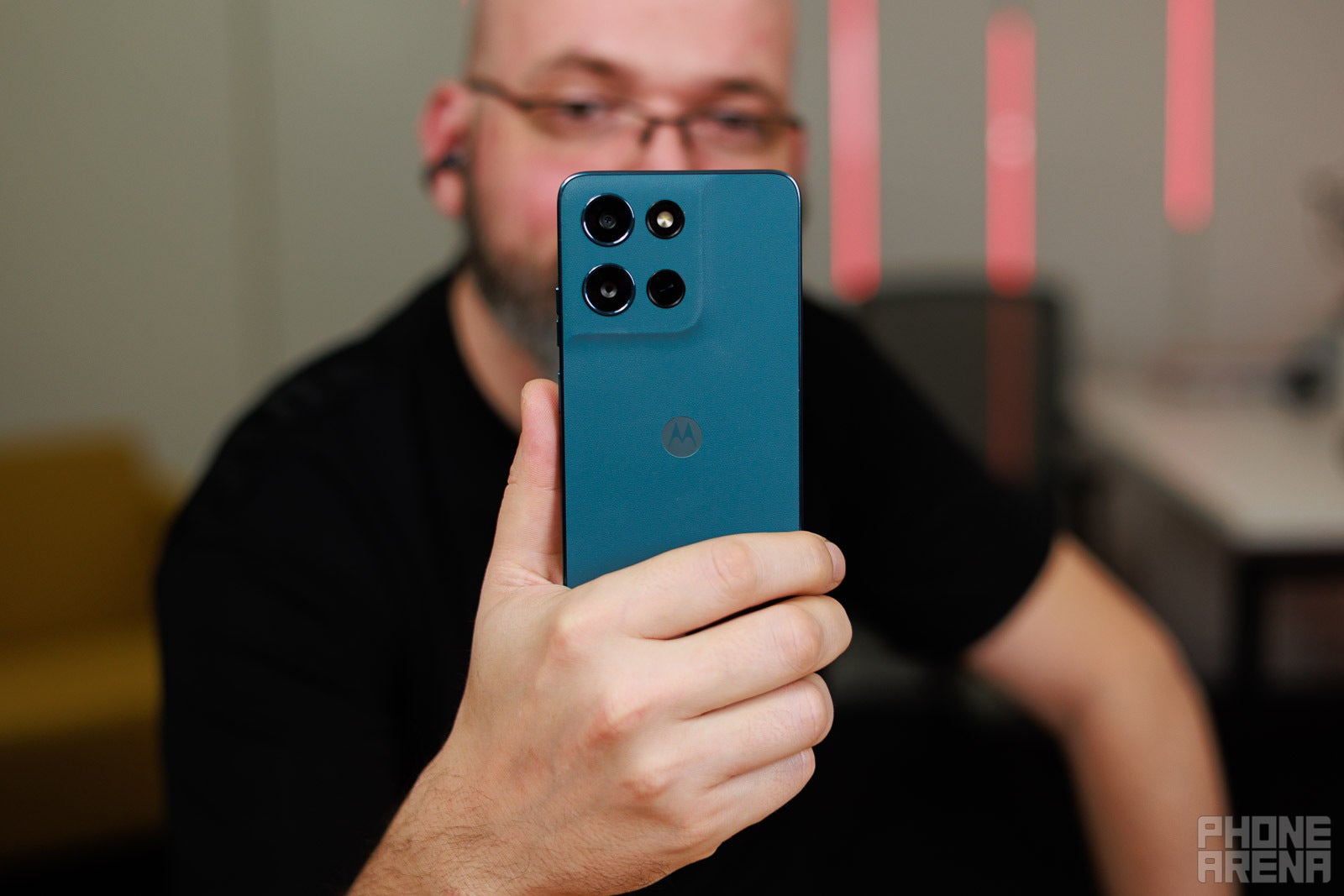

It has its streanghts, and it can be a good purchase depending on what you need. | Image credit — PhoneArena
As an alternative, Samsung’s Galaxy A16 5G sits just above it in price ($199), and it offers meaningful upgrades for about $20 more, especially in storage, software support, and camera performance, so it’s worth checking out.
Still. the Moto G Play (2026) is a decent choice for its price range, and a good phone for an elderly person, a kid, or a backup.
👇Follow more 👇
👉 bdphone.com
👉 ultractivation.com
👉 trainingreferral.com
👉 shaplafood.com
👉 bangladeshi.help
👉 www.forexdhaka.com
👉 uncommunication.com
👉 ultra-sim.com
👉 forexdhaka.com
👉 ultrafxfund.com
👉 bdphoneonline.com
👉 dailyadvice.us
